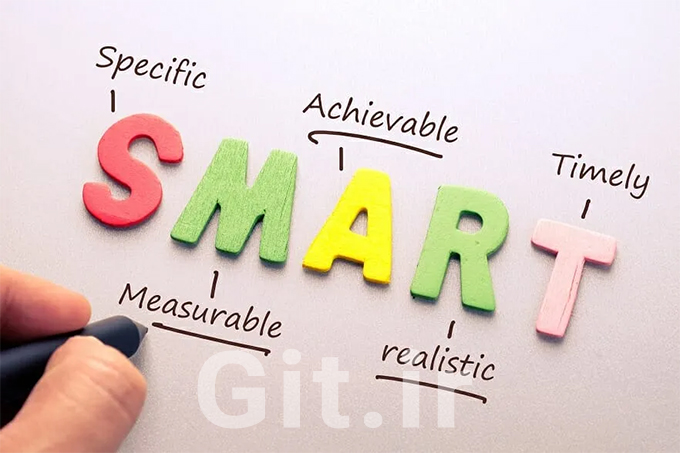Career Success by Setting Short-Term and Long-Term Goals
Both long-term and short-term career goals play a crucial role in keeping you focused as you progress toward your ultimate aspirations.

At some point, you’ve probably been asked, “What do you want to be when you grow up?” This simple question is often the first step in identifying your career goals.
Your answer likely depended on your age and understanding of the world at that time. Whether you dreamed of becoming a scientist or something as imaginative as a dinosaur, your response reflected your interests and the role you envisioned for yourself in the future.
Over time, as you gained more knowledge about different opportunities and developed new interests, you likely refined those early dreams into more specific and realistic goals. This process of self-reflection is a solid foundation for defining your current career goals.
In this article, we’ll explore what career goals are, how to identify them, and the steps you can take to achieve them.
▶️ View Course: Discover Your Life Purpose
What Is a Career Goal?
Goals can exist in every aspect of life, guiding you toward what you hope to achieve in the future. For instance, someone training for a marathon has a fitness goal, while a person learning to garden is working toward a personal goal.
A career goal, on the other hand, is a vision for your professional life that you actively work toward achieving. By setting clear professional goals, you can align your work-related decisions and actions with your ultimate career aspirations, creating a focused path toward success.
Common Examples of Career Goals
Career goals are often shaped by individual values, motivations, and aspirations for growth. While everyone’s goals may vary, many share similar professional objectives. Here are some common examples:
Advancing to a leadership position
Becoming a thought leader in your field
Changing careers to follow your passions
Achieving career and financial stability
Improving industry processes and workflows
If you want to explore these examples further and practice answering questions like “What are your career goals?” during interviews, take some time to reflect on your own aspirations and how they align with these examples.
🎧 Listen to the audio summary of Developing the Leader Within You
Short-Term Goals vs. Long-Term Goals
Career goals are often divided into short-term and long-term categories. While there’s no strict rule to separate the two, short-term goals are typically achievable within a few months, while long-term goals may take a year or more to accomplish. Recognizing the time frame for each goal allows you to set realistic expectations, prioritize tasks effectively, and monitor your progress.
Ideally, your short-term goals should align with and support your long-term career goals. This interconnected approach ensures that each step you take contributes to your broader aspirations, setting you up for sustained success over time.
Example: Identifying Long-Term and Short-Term Career Goals
Imagine you’re currently working as a business analyst. You enjoy your role but realize that improving your data collection skills could make you eligible for a promotion within the next year. To achieve this, you decide to enroll in the Google Data Analytics Professional Certificate program, which takes about six months to complete. As you advance through the program, you plan to apply your newly acquired skills to your upcoming work projects.
In this example, your long-term career goal is to qualify for a promotion within the next year. Your short-term career goals are:
Completing your professional certificate.
Applying your new skills to enhance your work projects.
This approach demonstrates how short-term goals can support your long-term aspirations, creating a clear path for career growth.
Making SMART Goals
A widely recognized approach to goal-setting is the SMART method, which ensures your goals are:
Specific: Is your goal clearly defined?
Measurable: Can you track and measure your progress?
Achievable: Is your goal realistic and attainable?
Relevant: Does your goal align with your ultimate career aspirations?
Time-bound: Have you set a deadline for achieving your goal?
By addressing these five criteria, you can create a strong foundation for accomplishing your goals. While the SMART framework is highly effective, it’s just one piece of the puzzle in achieving personal and professional success.
▶️ View Course: Setting Team and Employee Goals Using SMART Methodology
How to Accomplish Your Career Goals
Your career goals can shape your career trajectory, but it’s perfectly fine if you’re still figuring them out. Sometimes, your first goal might simply be identifying what you truly want. Understanding your values, work preferences, and long-term aspirations is an essential part of this process.
There are five key stages to help you accomplish your goals:
Understanding your values: What drives you and motivates your choices?
Picturing your ideal future: What does success look like for you?
Taking inventory of your skills: What strengths and abilities do you currently have?
Working toward progress: What actionable steps can you take now?
Assessing and reiterating: How can you evaluate your progress and adjust your plans as needed?
If you’re feeling uncertain, pinpointing which stage you’re in can provide clarity. Ask yourself focused questions to move forward.
Remember, self-reflection takes time, and flexibility is key. As you grow and learn, your goals may evolve—just like realizing that becoming a dinosaur might not be a realistic career aspiration, but new opportunities can lead you to unexpected success.
🔷 Read more: How to Motivate Yourself?
1. Understand Your Values
Your values are deeply personal and act as your moral compass, guiding your decisions and actions. They represent what matters most to you, such as loyalty, honesty, authenticity, or relationships. When your career goals align with your values, they become powerful motivators that help you create a life that reflects your priorities.
To better understand your values, ask yourself:
What is truly important to me?
How do I want to present myself in my career?
What motivates me to keep moving forward?
What topics or skills do I want to explore further?
By identifying your core values, you can create goals that not only inspire you but also keep you focused and fulfilled.
2. Picture Your Ideal Future Career
With your values in mind, imagine what it would look like to live and work in a way that aligns with those values. Visualizing your success is a powerful tool for achieving it. Take some time to explore the possibilities and imagine the career that truly fits your aspirations and circumstances.
Ask yourself:
What does my ideal future career look like?
How does this career align with my values?
How would it feel to achieve this career?
Your vision of your ideal future career serves as your long-term career goal, providing clarity and direction as you work toward professional success.
▶️ View Course: The Complete Resume, LinkedIn & Get Your Dream Job Course!
🎧 Listen to the audio summary of How to Find Fulfilling Work
3. Take Inventory of Your Skills
Once you have a clear vision of your long-term career goal, it’s time to connect your future destination with your current situation. Research the skills and experience you’ll need to achieve your goals, and assess the skills you already possess. Be sure to consider both workplace skills and technical skills, as they are equally important in your career development.
Writing a career development plan can help you stay organized as you evaluate and work on acquiring the necessary skills.
Ask yourself:
What skills do I already have?
What skills do I still need to develop?
How can I acquire those skills?
By identifying the skills you need and creating a plan for gaining them, you can move forward with confidence toward your career goals.
🔷 Read more: The Importance of Skill Development and Where to Start
▶️ View Course: Soft Skills: The 11 Essential Career Soft Skills
Tip: Managing Overwhelm When Taking Inventory of Your Skills
Taking stock of your current skills and identifying the skills you need to develop can feel overwhelming, and it’s normal for fears of failure to surface. Here are some strategies to help calm those worries:
Return to your values: Remind yourself of why you started this path in the first place. Use your core values as motivation to keep moving forward.
Ease your timeline: While it may seem like a lot of work, you have control over how long it takes to achieve your goals. Give yourself the flexibility to move at your own pace.
Reduce your scope: If thinking about your ideal future career in three years feels overwhelming, focus on the next year. Break down your larger goal into smaller, more manageable steps.
Examine your discomfort: Discomfort can sometimes indicate a misalignment between your goals and values. Identify what feels off and consider whether you've overlooked something important.
By using these strategies, you can ease the pressure and approach your career goals with a clearer, more manageable mindset.
4. Work Toward Progress
Now that you know what skills and experiences you need to reach your goal, it’s time to take actionable steps toward achieving it. At this stage, you’ll focus on the specific tasks you can do to make progress. Breaking your long-term goal into smaller short-term goals can help you stay focused and motivated. You can use the SMART goal method to create clear, achievable action steps.
Ask yourself:
What smaller steps can I take to achieve my long-term goal?
How would I like to prioritize my short-term goals?
What action will I take this week to work toward my goal?
What progress do I want to make in the next month? The next three months?
By setting and tackling smaller, more manageable goals, you can stay on track and continuously move closer to accomplishing your ultimate career aspirations.
5. Assess and Reiterate
As you continue to make progress toward your goal, you’ll be gaining new skills and refining your career toolkit. Take time to reflect on the "new normal" you're building and how it feels to be in this space. Some tasks will come easily, while others may present more challenges. It's important to assess both: what makes the easy tasks easy and what makes the more difficult ones challenging? These reflections can offer valuable insights as you work toward—and potentially rework—your ultimate goal.
Ask yourself:
How does it feel to work toward my goal?
What am I learning about myself during this process?
In times of stress, how does distress impact my progress?
How can I prepare to cope with potential roadblocks in the future?
By regularly assessing your progress and adjusting as needed, you ensure that you remain aligned with your long-term aspirations and stay resilient in the face of challenges.
🔷 View the list of Personal Development Courses
